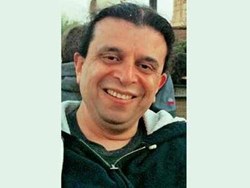
Indian researchers benefit from not just the theoretical background that an Israel education provides, but also the world-class infrastructure that is an intrinsic part of the system. This, says Avraham Yaron, professor at the Department of Biomolecular Sciences, Weizmann Institute of Science, “is largely because of Israel’s global reputation as a startup nation with innovation and technology at its core.”
Yaron finds it fascinating to brainstorm with Indian students. “Their intelligence and inquisitive nature surprises me. Competitive in nature and quick learners, they have an ability to get along well with their peers,” Yaron says.
“While Indian students tend to work in a traditionally technical manner, they adapt well to the infrastructure facilities offered at Weizmann with a whole spectrum of researches in multidisciplinary settings,” he says.
The students are encouraged to collaborate with peers from other labs, suggest innovative ideas for research, and actively participate in scientific discourse together with their supervisors. Till date, Weizmann has had 722 Indian students both past and present pursuing MSc, PhD and post-doctoral studies. They usually opt for and excel in programmes that focus on technology, medicine and life sciences, among other fields.
MENTORING MATTERS
“What draws the students is the mentoring by scientists who have undergone post-doctoral training in reputed labs in the USA and Europe. Besides, superior equipment and research facilities propel students to finish their PhD at Weizmann and apply for post-doctoral positions in top labs in Europe and the US. The research here is more goal and publication oriented. In addition, the students-professor interaction is more open and less hierarchical,” Yaron says.
CULTURAL KINSHIP
Indian students, according to him, integrate well in Israel’s campuses, owing to cultural affinities between the two countries and their traditional roots. “The cultural values such as love for one’s family, the need for higher education and a similarity in the local cuisine are some of the factors that make Indian students feel at home here,” Yaron says. He adds, “The international office at The Weizmann Institute of Science takes care of all the administrative issues including visa, housing and healthcare. “It initiates many social activities for the students including festival celebration such as Holi and Diwali.”
